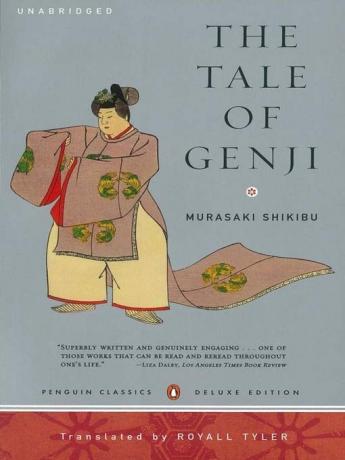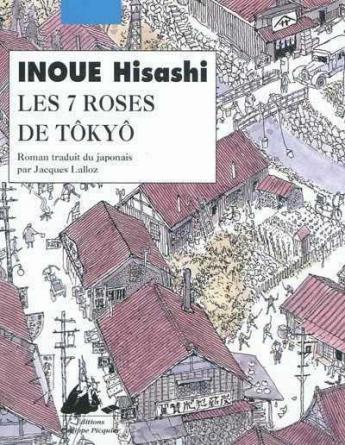Tip
The Japanese Literature Publishing Project and The Private Library

By L. D. Mitchell
If you are like most Western book collectors, you probably have little familiarity with Japanese literature. Perhaps because the Japanese language relies on three different writing systems (two of which are syllabary systems), this writer has encountered few private collections of Japanese literature that were not assembled by native speakers of the language.
This is unfortunate, for not only has Japan produced some of the world's greatest literature, it has produced some of the earliest surviving forms of world literature. Among these are one of the earliest surviving examples of the novel (The Tale of Genji); one of the world's earliest surviving examples of a story involving time travel (Urashima Tar?); Man'y?sh?, one of the world's earliest surviving poetry anthologies; and Konjaku Monogatarish?, a 31-volume compilation of very early folktales from Japan, China and India, of which 28 volumes survive.
Western book collectors might be more familiar with Japanese literature if such literature were widely translated into Western languages, but such is not the case. The Japanese language is only partly to blame for this situation. History, too, is a culprit.
For over two hundred years, from ca. 1633-1853, Japan was largely isolated from the West. This at the very time when much other world literature was undergoing enormous change, and when the products of such change were being translated into a wide variety of European vernacular languages.
By contrast, the first translation of Japanese literature into German didn't take place until 1847. (Because August Pfizmaier's translation of Ryutei Tanehiko's 1821 storyUkiyoe Six-Paneled Folding Screen included reproductions of the original Japanese text and illustrations, this work became the first Japanese text ever printed in Europe from movable types, the font having been cast in the previous year, at Pfizmaier's direction, for the Imperial printing office in Vienna. The copy to your left is via the Tokyo Printing Museum.)
The Tale of Genji, the work of Japanese literature perhaps best known to Western book collectors, did not receive its first English-language translation until 1882, and its first complete English-language translation (by Arthur Waley) did not see its sixth and final volume published until 1933.
For reasons both linguistic and historical, then, most works of Japanese literature, like most Japanese authors, remain virtually unknown in the West. The exceptions (think modern Japanese authors Banana Yoshimoto and Haruki Murakami, for example, or Nobel Laureates Yasunari Kawabata and Kenzabur? ?e) stand out precisely because their works have been translated into numerous Western languages.
This blinkered neglect of Japan's literary traditions by the West, though, may slowly be changing. In 2002, Japan's Agency for Cultural Affairs launched a bold initiative to better promote Japanese literature worldwide. The Japanese Literature Publishing Project (JLPP) is designed to promote Japanese literature of the past 150 years by arranging overseas publication in a variety of (mostly Western) languages. As of 2010, 121 titles had been selected for translation, with more to come. (The publishing cycle is such that new titles are selected roughly every two years, which means that in 2012 we likely will see a new round of titles selected.)
Besides English, initial titles have been published in French, German, Russian, Portugese and Turkish. To insure the highest quality translations possible, JLPP also instituted, in 2011, the 1st JLPP Translation Competition.
So far as this writer has been able to determine, this is the very first translation of many of these titles into any Western language. A ground-floor opportunity for book collectors so inclined ....
For many years L.D. Mitchell's blog The Private Library showed collectors that it is possible to build a collection without the benefit of much money. He published numerous articles on every imaginable subject of book collecting, he wrote about the most beautiful, the most important, the most common, the most attractive, the most unusual, the most interesting, the most extraordinary, the most amazing ... books one could read, buy, collect and simply enjoy. The Private Library has become an irreplaceable resource for all booklovers. Since April 2012, it is a static archive. L. D. Mitchell will no longer post new original content. ILAB is very grateful that he has given permission to publish some of his best articles and collecting tips from The Private Library on the ILAB website. Thank you very much, L.D.

